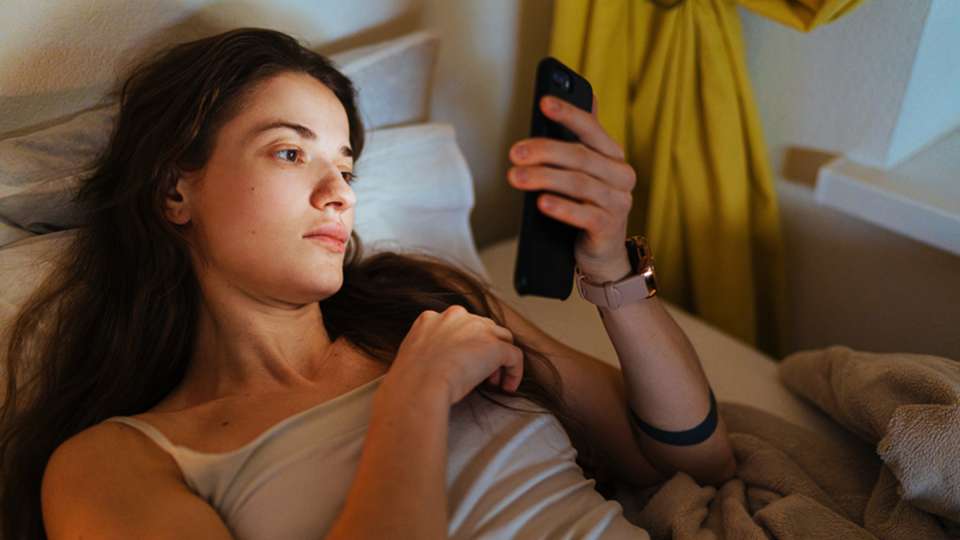3 Reasons Not to Use Social Media to Diagnose Anxiety

The internet is great at convincing us we have medical conditions we don’t actually have. (Looking at you, symptom checker.) This can create problems, like unneeded doctor’s visits, but it can also have a more lasting impact, especially if the condition you think you have is a mental illness.
While the internet and social media have been great tools for helping people find community and reduce stigma around mental health conditions, like anxiety, depression or even things like attention-deficit hyperactivity disorder (ADHD), they have also increased how often people self-diagnose. That isn’t a good thing, says Patricia Areán, a clinical psychologist and professor at the UW School of Medicine’s Department of Psychiatry and Behavioral Sciences.
“In fact, when I started my training, all my textbooks would warn the reader that while readers may recognize certain signs and symptoms in common with the disorders we were reading about, the reader should never self-diagnose,” she says.
Here’s why you shouldn’t try to self-diagnose mental illness.
1. You will probably misdiagnose yourself
If you’ve watched TikToks about “5 Signs You Have an Anxiety Disorder” or “What ADHD Is Really Like” and felt seen, that’s great. But it’s also just the beginning.
Information you discover on social media can help you identify reasons to talk with a doctor but isn’t something you should automatically trust or use to self-diagnose.
“There are some professional influencers out there who have good information, but it's very hard to determine who is accurate and who is feeding you bad information,” Areán says.
Since symptoms vary from person to person and each person’s experience of mental illness is unique, what one influencer, celebrity or even doctor shares may not apply to you.
Even Areán says she wouldn’t try to self-diagnose herself. Why?
Having more than one type of mental illness, what doctors call comorbidity, isn’t as rare as you might think. Past studies, such as this analysis of health records among Danish people, have shown that being diagnosed with one mental illness makes someone more likely to be diagnosed with a second.
We get that self-diagnosis is tempting, what with the shortage of and lack of accessibility to doctors, the cost, the time and effort it takes to get treatment, the bias some people experience at the doctor’s office and a whole host of other reasons. But if you think you need help, it’s important to seek it in a way that will be most useful.
2. You might pathologize a common trait
People on the internet tend to overgeneralize and exaggerate what symptoms of mental illness actually are.
Most of us experience anxiety, sadness and other difficult feelings and emotions from time to time. But just because you panic before a big presentation or struggle to get out of bed on cold, dark winter mornings doesn’t mean you have anxiety or depression.
The same goes for types of neurodivergence like attention-deficit hyperactivity disorder (ADHD) and autism. While social media can help people build community and feel understood, it can’t tell you if you have one of these conditions.
Areán cites a video she saw circulating on social media about ADHD symptoms. It cited clumsiness and forgetfulness as signs someone has ADHD.
“This video may have been a spoof for all I know, but seriously, these are not necessarily signs of ADHD. They are signs of being a human being,” she says.
Understanding of neurodivergence has changed over time, and recently doctors began recognizing that old criteria for things like ADHD and autism, based on the experiences of young boys, don’t necessarily apply to people of other genders.
That means diagnoses from professionals aren’t always perfect, and they do evolve over time, Areán says. But they’re based on doctors’ current knowledge — which is a lot more than you’ll find online.
3. You won’t get the help you need
Seeking a professional diagnosis isn’t easy. With shortages of mental health professionals and doctors who can perform a diagnosis, negative emotions and fears around the process, and uncertainty for what will come after, it may be tempting not to seek a diagnosis at all.
“But it is worth putting your name on several waiting lists to get a good diagnosis,” Areán says. “What it gives you is an accurate picture of what your mental health is, an opportunity to get appropriate treatment, and for situations like ADHD and autism, an official diagnosis allows you to get accommodations for your condition at school and work.”
You can also ask your doctor for a recommendation or referral, which may make it a little easier to get that first appointment.
Another factor to consider is that your symptoms may not be from a mental health condition, but something else. If you talk with your doctor about your symptoms or ask for a referral, they can do a physical exam, blood work and other testing to rule out conditions that share symptoms with mental illness.
“Certain medical conditions, like thyroid disease, can mimic symptoms of mental illnesses like depression. A simple blood test will identify if you have such a condition,” Areán explains.
The bottom line
Social media can help you recognize when you might need to see a mental health specialist. It can help you feel less alone and find community. But it can’t help you diagnose yourself — only a professional can do that. And the self-help tips you find on social media aren’t a replacement for therapy, medication and other treatments provided by a professional.

 Healthy ideas for your inbox
Healthy ideas for your inbox





